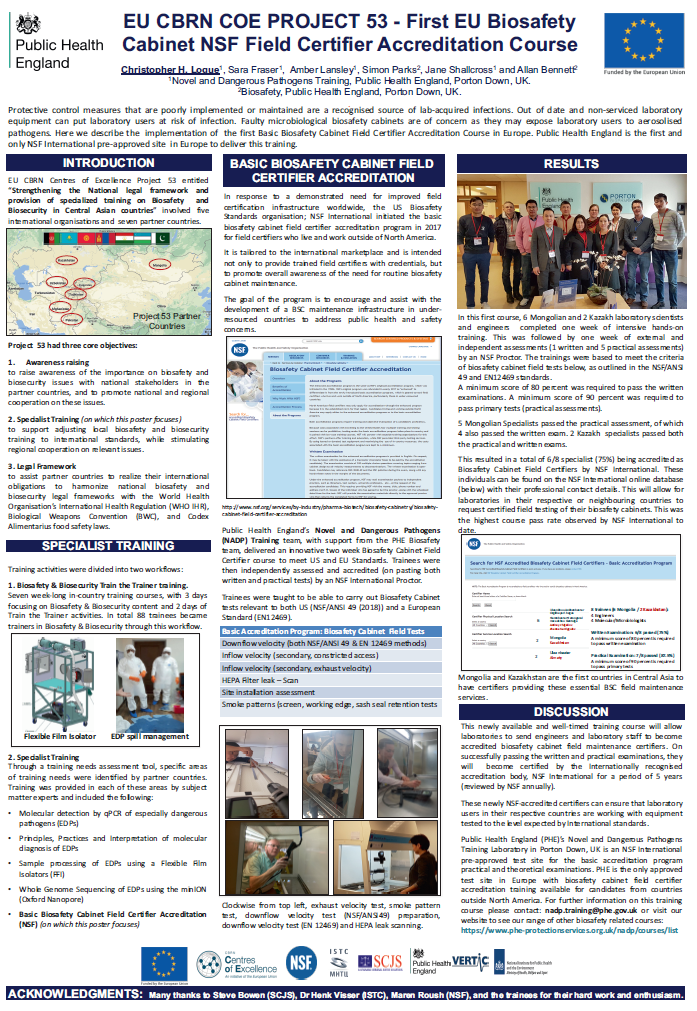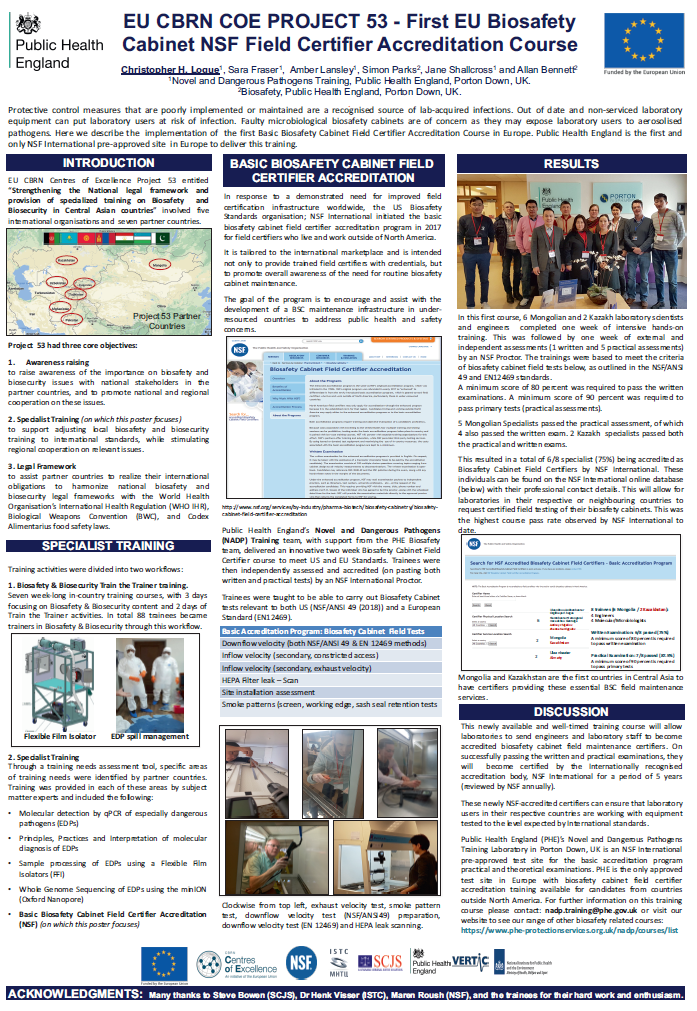EU CBRN Project 53 Participates in the European Biosafety Association (EBSA) 22 Conference, presenting the results of its first EU Biosafety Cabinet NSF Field Certifier Accreditation Course

 Key Expert in Biosafety and Training of European Union funded Project 53, Prof. Christopher H. Logue, has presented some of the accomplishments of the project at the European Biosafety Association (EBSA) 22 Conference, which took place from 2 to 5 of April 2019 in Bucharest, Romania.
Key Expert in Biosafety and Training of European Union funded Project 53, Prof. Christopher H. Logue, has presented some of the accomplishments of the project at the European Biosafety Association (EBSA) 22 Conference, which took place from 2 to 5 of April 2019 in Bucharest, Romania.
Protective control measures that are poorly implemented or maintained are a recognised source of lab-acquired infections. In order to address these risk, Prof. Logue and his colleagues at Public Health England (PHE) team developed and implemented the first Basic Biosafety Cabinet Field Certifier Accreditation Course in Europe, which was funded by the European Union under Project 53. This course focuses on dealing with faulty / out-of-service date microbiological biosafety cabinets, that are of concern as they may expose laboratory users to aerosolised pathogens. Public Health England is the first and only NSF International pre-approved site in Europe to deliver this training. This training forms part of the Specialist Training core objective of Project 53, which aims to support developing local biosafety and biosecurity training to international standards, while stimulating regional cooperation on relevant issues.
In this first course, 6 Mongolian and 2 Kazakh laboratory scientists and engineers completed one week of intensive hands-on training. This was followed by one week of external independent assessments by an NSF Proctor. The training was delivered by Public Health England’s Novel and Dangerous Pathogens (NADP) Training team, with support from the PHE Biosafety team. Seven of the scientists are now NSF accredited Biosafety Cabinet field certifiers, and can be contacted via the NSF International website to arrange a Biosafety cabinet field test.
This course comes in response to a demonstrated need for improved field certification infrastructure worldwide, including in Project 53 Partner Countries. This training activity falls well within the objectives of Project 53 as well as the overall EU CBRN CoE Initiative to build capacity and capabilities within Partner Countries to reduce CBRN risks.
The Project 53 was conceived and funded within the framework of the EU CBRN CoE Initiative, which currently covers 8 regions and 61 partner countries. The EU CBRN CoE Secretariat for Central Asia is based in Tashkent, Uzbekistan. It works in partnership with countries to encourage local ownership of CBRN action plans, policies and joint preparation of regional project proposals.
The ISTC, implementer of P53, has funded and managed several hundred projects in Central Asia over the past 20 years. Expertise to implement P53 is provided by a UK-led (SJCS) consortium of international legislative experts (VERTIC), and biosafety and biosecurity training experts (PHE, RIVM)

